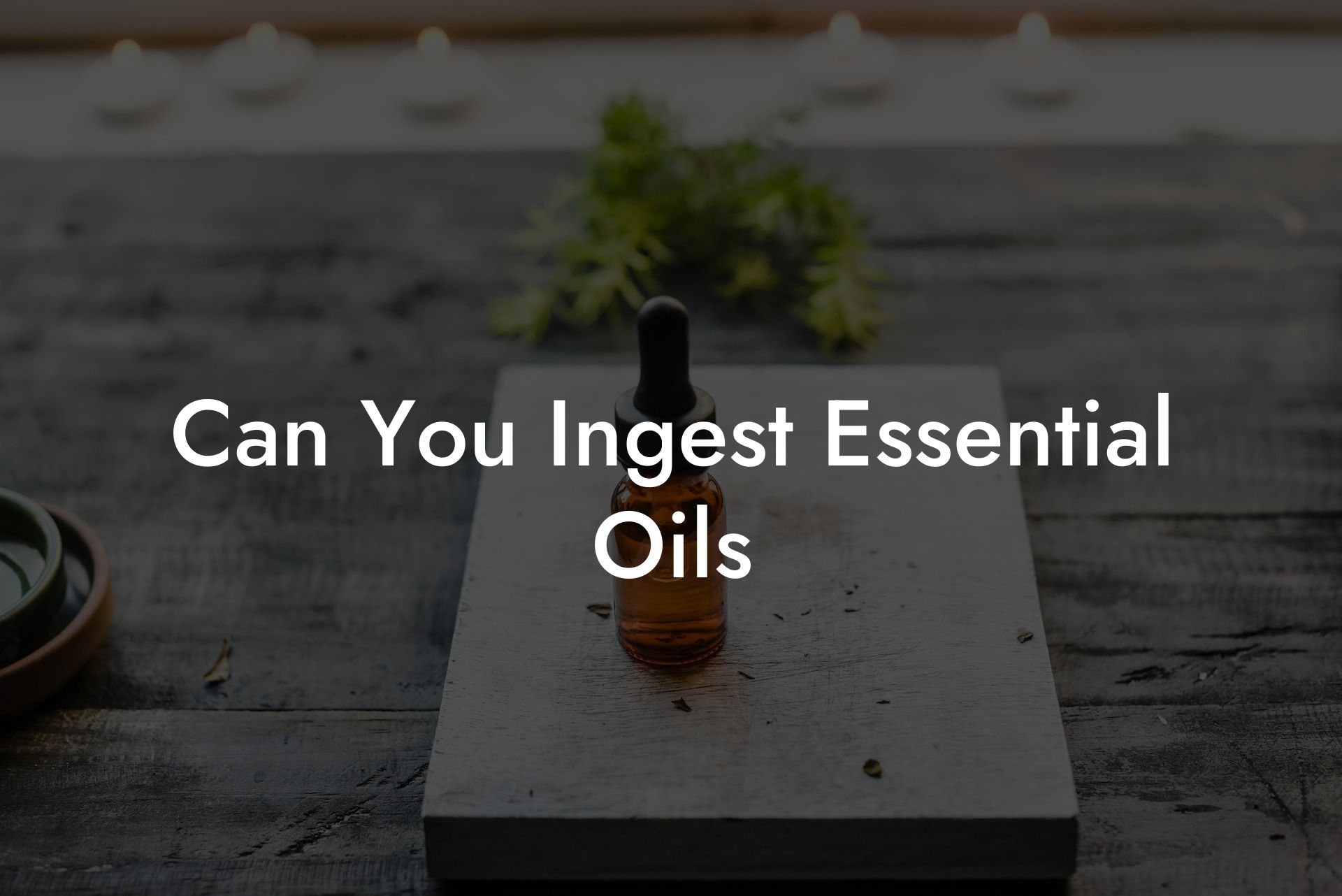Discover the widely debated topic of ingesting essential oils and its various risks and benefits. Join us as we delve into the world of essential oil consumption and its potential impact on your health.
Table of Contents
Can You Ingest Essential Oils?
While essential oils are widely used for their aromatic and topical benefits, the topic of ingestion remains controversial. Some experts promote the internal consumption of essential oils, while others caution against it due to potential health risks. To gain a better understanding, let’s explore the pros and cons of ingesting essential oils.
Benefits of Ingesting Essential Oils
- Therapeutic Effects: Some essential oils are believed to have medicinal properties when ingested, treating ailments such as indigestion, cold symptoms, and sleep disorders.
- Flavoring: Oils like lemon, orange, or peppermint can add a zesty twist to recipes, enhancing the taste and aroma of food and beverages.
Risks of Ingesting Essential Oils
- Purity and Quality: Not all essential oils are created equal. Poor quality or adulterated oils can have harmful effects when ingested. It is crucial to use oils that are pure and from a reputable source.
- Concentration: Essential oils are highly concentrated, making it easy to accidentally consume an excessive amount. Overconsumption of oils can lead to toxic reactions or cause gastrointestinal distress.
- Drug Interactions: Some essential oils may interact with medications or have a negative effect on pre-existing medical conditions. Before ingesting any essential oil, consult with a healthcare professional.
- Children and Pregnant Women: The consumption of essential oils is not recommended for children or pregnant women without proper guidance from a healthcare professional.
How to Safely Ingest Essential Oils
If you decide to ingest essential oils, follow these safety guidelines to minimize potential risks:
Choose High-Quality Oils
Ensure your essential oils are 100% pure, organic, and sourced from a reputable company, like Oshu Oils. Avoid any oils that contain synthetic additives or diluents.
Consult a Professional
Before ingesting any essential oil, consult with a certified aromatherapist, naturopath, or healthcare professional to discuss your specific needs and concerns.
Follow Proper Dilution Guidelines
Essential oils should never be ingested undiluted. Always dilute the oil with a carrier oil, such as coconut or olive oil, before consuming. Follow the manufacturer’s recommendations or seek guidance from a professional for proper dilution ratios.
Can You Ingest Essential Oils Example:
Imagine adding a drop of lemon essential oil to your water, creating a refreshing citrus-flavored beverage that may also improve digestion. Before ingesting the lemon oil, check the label to ensure it is 100% pure, organic, and from a reputable brand like Oshu Oils. Consult with a healthcare practitioner to confirm that it is safe for you to consume. Lastly, dilute the lemon oil with a carrier oil or water according to professional guidelines, making sure not to exceed the recommended amount.
The topic of ingesting essential oils is surrounded by debate, but understanding the potential benefits and risks can help you make informed decisions about their usage. If you choose to consume oils, do so with caution and always seek professional guidance. To learn more about essential oils and their applications, don’t forget to explore our guides on Oshu Oils and browse our range of high-quality essential oils. If you found this article insightful, please feel free to share it with others who may be interested!





















